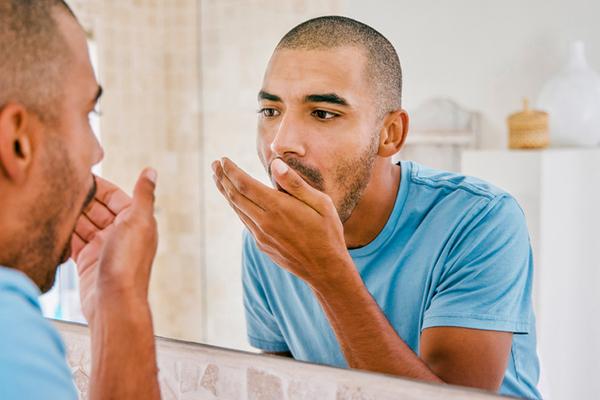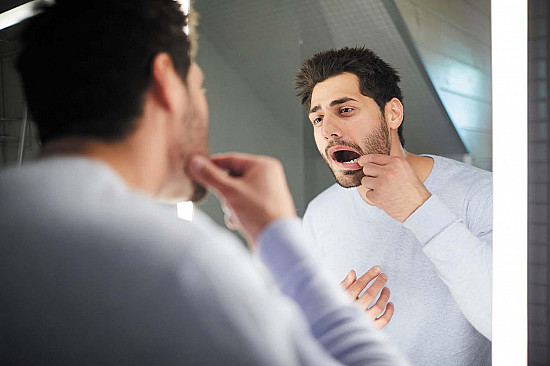Halitosis: Common causes, effective treatments, and powerful prevention for bad breath
- Reviewed by Howard E. LeWine, MD, Chief Medical Editor, Harvard Health Publishing; Editorial Advisory Board Member, Harvard Health Publishing

During a conversation with a coworker, you notice them taking a step back, leaving you wondering if that raw onion in your lunch salad might have left you with bad breath.
What Is halitosis?
Halitosis is the medical term for bad breath. Halitosis can be temporary (the result of eating a dish with plenty of garlic, for example) or chronic. Chronic cases are typically caused by an underlying condition, such as gum disease.
Common causes of bad breath
Bad breath is often due to a buildup of bacteria in the mouth. This buildup can occur for a number of reasons. Some common causes of chronic bad breath include:
- Poor oral hygiene. If you don't brush and floss regularly, particles of food can remain in your mouth and produce a bad smell as they decay. Decaying food particles can also promote bacterial growth.
- Dry mouth. Saliva performs an important function by washing away food particles and bacteria in the mouth. Without enough saliva, food particles and bacteria remain. Dry mouth has many possible causes. These include certain medications, such as those that treat incontinence, depression, and allergies, as well as salivary gland problems.
- Gum disease. Gum diseases such as gingivitis and periodontitis result from long-term bacteria buildup in the pockets between teeth, and can cause bad breath.
- Certain foods and beverages. Foods with strong odors, like garlic and onions, cause bad breath. Coffee and strong-smelling alcoholic beverages can also be culprits.
- Tobacco. Smoking stinks. It not only causes bad breath, but it increases your risk of cancer and other serious diseases.
Treating halitosis
Your dentist can help figure out the underlying cause of your halitosis and come up with ideas for keeping it at bay. It may simply be a matter of learning how to brush and floss properly. If the cause is gum disease or another dental problem, you may need a deep cleaning or other procedure.
Preventing bad breath: Tips for a fresh mouth
The best way to prevent bad breath is to maintain optimal oral hygiene habits. These include:
- brushing your teeth twice a day
- flossing once a day to remove any food particles left after brushing
- getting regular dental checkups every six to 12 months.
When you might need to see a doctor for bad breath
If you're brushing and flossing consistently and your dentist has ruled out other oral conditions, you may want to consult your doctor. In some cases, bad breath can be caused by medical conditions like diabetes or gastroesophageal reflex disease (GERD).
About the Author

Christina Frank, Health Writer
About the Reviewer

Howard E. LeWine, MD, Chief Medical Editor, Harvard Health Publishing; Editorial Advisory Board Member, Harvard Health Publishing
Disclaimer:
As a service to our readers, Harvard Health Publishing provides access to our library of archived content. Please note the date of last review or update on all articles.
No content on this site, regardless of date, should ever be used as a substitute for direct medical advice from your doctor or other qualified clinician.















